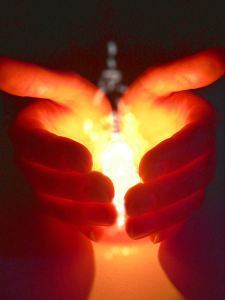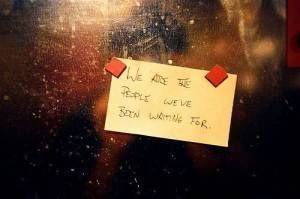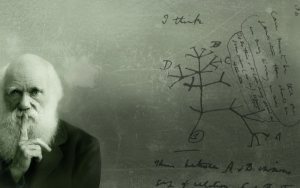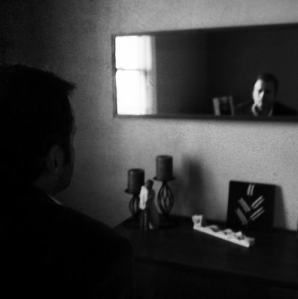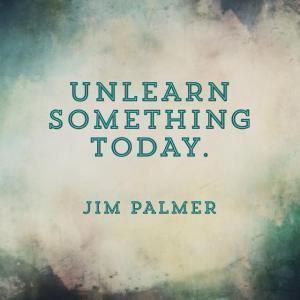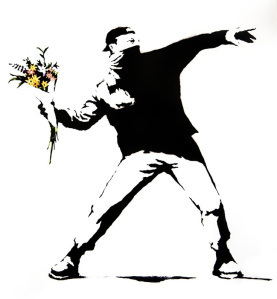Jim Palmer's Blog, page 34
April 8, 2014
Acceptance is not tolerance (and you are beautiful the way you are)
“I wish you could see yourself through my eyes. If you could, you would see just how beautiful you are, and the extraordinary miracle of being you. If you could climb inside of me right now and feel what I feel for and about you, you would know you are accepted and loved… all of you… just the way you are, and you would never again doubt your worth or your place in this world. Don’t confuse the word “acceptance” with “tolerance.” It’s not that you are a tolerable you. You are that priceless piece of art, that song that brings tears to your eyes, that sunset that moves you, takes your breath away and satisfies every molecule of your being. I don’t “tolerate” you, I dance and celebrate you! I wish right now you could sink down into and bask in the warmth of knowing all that you are.
But you won’t believe this about yourself. Instead, you are seeking worth, love, acceptance, security, peace, worth and happiness out there in the world. So you live in fear.
You fear failure because you have a misplaced dependency upon “success” for value and worth. You fear rejection because you have a misplaced dependency upon others’ opinions and responses to you for acceptance. You fear financial loss because you have a misplaced dependency upon money for peace and security. You fear abandonment because you have a misplaced dependency upon others for love. You fear God because you have a misplaced dependency upon religion that measures your value against your performance. You fear aging or not having the perfect body because you have a misplaced dependency on physical appearance for worth and acceptance. You fear honesty because you have a misplaced dependency on an image of having it all together for a sense of identity. You fear being a nobody because you have a misplaced dependency upon being a somebody for a sense of purpose and meaning and value.
Listen to me. Even if you could achieve all those things, they would not satisfy or fill what you long for. Somewhere out there along the way in your drive to succeed, your game of image management and pleasing others, your dutiful religious obedience, your obsession with losing weight and being thin, and carrying that monkey on your back to be special and significant or at least not found out… somewhere out there along the way in all of that you are going to lose something invaluable… yourself.
Do you get that? You’ll lose you – the you I see right now… the beautiful you, the worthy you, the good you, the loved you, the extraordinary you. Do you see? Even if, by doing all those things, you gained the whole world, you would forfeit you.
I’m going to ask something of you that isn’t going to be easy because it’s going to require you to trust me. Right now you are carrying a story inside your head about yourself that isn’t true, and you’re going to spend your entire life forfeiting yourself and losing your life trying to fight or disprove that story. I’m asking you to start seeing you through my eyes. I’m asking you to be open to the possibility that there is nothing wrong with you and never was. That you have nothing to earn, nothing to prove or disprove, that you can bury that fictitious story, and start living the truth. They say the truth is always better than fiction. See that for yourself. That other story will kill you piece by piece until there’s nothing left. But living the truth of who you are is going to open up a life of possibilities you could have never dreamed and would have never achieved out there chasing the carrot of acceptance.
There’s nothing wrong with you. There is no obstacle to overcome here except yourself. You can do this! You can step into the real story of who you are. Part of the old story is that you can’t. Not true. I wouldn’t have asked if I knew you couldn’t. Sure, it’s going to be a process. You going to have good days and bad days. But then one of those days… somewhere out there along the everyday paths of life when you least expect it… it will sneak up on you and suddenly you will indeed see yourself through my eyes.
Then we’ll both dance.”
- Jesus, Luke 9:25, The Religion-Free Bible (Jim Palmer)


April 6, 2014
Sometimes the spiritual path is leaving your abuser
“No little girl says I hope I grow up one day to be in an abusive relationship.
No little boy says I hope I grow up one day to abuse a woman.
But it happens. It happens every day, and you’re not the only one. Every 9 seconds in the US a woman is assaulted or beaten. Domestic violence is the leading cause of injury to women—more than car accidents, muggings, and rapes combined. Every day in the US, more than three women are murdered by their husbands or boyfriends.
You are not alone.
No little boy says he wants to grow up and beat women but this is what your husband or partner did and does. That’s not your fault. You can’t change that. That’s not your responsibility to carry. That’s not your problem to solve. You didn’t cause it. You cannot fix it. What he does or doesn’t do is outside your control and you cannot do it for him. This is something only he can choose and do for himself.
Your true Self that is one with God assumed a mind and body in order to have a human existence. You are here because you want to be. This is what you chose. You chose to be human.
There’s nothing you can do about any moment of your life that has preceded this moment. All that matters is this present moment. There is 100% of the rest of your life left. And the way forward is to be present to what’s in your life right now, and respond as the situation requires. This is your spiritual path.
You are in an abusive relationship and the situation requires you to separate yourself from your abuser and quite likely terminate the relationship. If someone has told you that you are obligated to stay with your abusive husband or partner for religious reasons, they have placed a burden on you that God doesn’t. Show me the Bible verse that says this. I have a Master of Divinity degree and have vigorously studied every verse in the Bible and have never come across one.
Sometimes what life situations require is difficult, and this is certainly true in the case of leaving an abuser. What it means right now for you to live a spiritual life is not going to church, reading your Bible, or volunteering your time to serve others in need. That you would feed the hungry, forgive an insult, or love your enemy are all noble and worthwhile deeds. The scriptures say that whatever we do unto the least of these we do unto Christ. But what happens when the “least of these” is you? What if the “least of these” is that woman who wakes up each day in fear of being controlled, abused, and battered? You hide it from the world and refuse to admit it to yourself that the “least of these” you most need to love and care for is… you.
You already know that the situation requires you leaving your abuser. But you also believe a story about yourself that isn’t true. The story is about how you’re not capable of leaving. The story says you’re not smart enough, strong enough, confident enough, or competent enough to make it on your own financially and successfully establish a life of independence. And so in your mind the option of leaving is an impossibility.
That story is a lie.”
- Jim Palmer, Notes from (Over) the Edge


April 4, 2014
Is it okay to be sick? Do I lack the faith to be healed?
I often receive emails from people about the subject of healing, which motivated me to write the below post.
Our original, fundamental, eternal Self is a manifestation of the image, likeness and being of God. That Self is complete, whole, and permanent. That Self cannot be improved or diminished. That Self is in no need or improvement, transformation, or enlightenment. That Self took on a human mind and body in order to have a human experience, and to give human expression to that eternal Self. Unlike that Self, our human mind and body are not permanent. Our human body and mind changes, is shaped and impacted by our environment, circumstances, conditions and a variety of influences. The human mind and body deteriorates, is susceptible to illness and disease, and eventually stops functioning. Ultimately, we all die. This is part of the deal with respect to being human.
There are several things to recognize about this:
1. The impermanence of the mind and body is not wrong.
A characteristic of the human mind and body is its impermanence. Is the sky wrong for being blue? Is a fish wrong because it cannot live outside of water? Is a turtle wrong because it is slow? Of course not, those are simply their particular characteristics. The human mind and body are capable of extraordinary feats, but a characteristic of both is that they are impermanent. The limitations of the human mind and body is not a spiritual problem. The deterioration of the human mind and body is not a spiritual problem. Illness and disease is not a spiritual problem. When your human mind and body stops functioning, that’s not a spiritual problem. We should not make these realities of the human mind and body wrong.
2. It is wise to approach life by responding to situations and realities as they require.
You have a mind and body, and you are responsible for it. Having a human mind and body is a situation that requires one to do those things that aid their health and vitality. If one is negligent with this, they may jeopardize their mental and physical health and well-being. It’s very likely that you can prevent disease and extend the length of your human life by applying this wisdom.
3. Modern medicine and homeopathy (alternative forms of medicine) make a significant contribution.
The evolution of humankind has included the discoveries of modern medicine and homeopathy to prevent, treat, and manage disease of the body and mind, and contribute to the health and well-being of the body and mind. Each person is responsible to make their own choices on how to integrate modern medicine and homeopathy in this regard. Over time humankind has acquired much useful knowledge in dealing with the human mind and body. We should celebrate this, and take advantage of it as we are inclined to do so.
4. There is extensive evidence for various healing practices.
In areas such as science, quantum physics, psychology, and spirituality there is an understanding of life as energy. This knowledge is the basis of many healing practices/methods and energy therapies that promote healing, balance and wellbeing in the mind and body. Reiki and EFT are a couple examples, but there are many others – too numerous to mention here. Many people attest to the value of all kinds of different healing methods and practices.
5. Jesus related to people as whole beings.
I don’t think that physical healing was central to the life and message of Jesus. We know very little about the context and circumstances in which Jesus was involved in restoring the health of another. On one such occasion, Jesus attributed the person’s healing to their own internal change. Even those that Jesus did impact in this way, it was only temporary. Every person who experienced healing eventually grew sick or ill, succumbed to disease, and eventually died like the rest of humankind. Jesus had compassion for human beings, including their human ailments – for Jesus himself had a human mind and body too. He was not uncaring or insensitive to this.
And yet Jesus also understood the impermanence of the human mind and body. Jesus could not change or override this. He wasn’t supposed to. It wasn’t necessary. Because Jesus understood this, I don’t think physical human healing was central to his mission and teaching.
6. People should not be shamed for physical or mental illness.
In many “faith healing” scenarios or divine formulas if a person remains ill or a loved one is ill or dies, they are told that they did not have enough faith or it was the result of their “sin of unbelief” or some other “spiritual problem.” This has to rank right up there in the top 5 most absurd and damaging religious notions. The idea that physical or mental disorders are the result of some “spiritual problem” is not reasonable. If you are not doing those things that are necessary to promote and manage your own mental and physical health, then it only stands to reason that you will reap the consequences. But the idea that you messed up a divine healing for yourself, your child or someone you love because of your lack of faith or some spiritual problem is misguided thinking. Sickness, chronic illness, depression, infertility, and many of the conditions, disorders and diseases that afflict human beings every day are not the result of any spiritual problem.
7. We should be caring for people who suffer from mental and physical disorder or disease, not judging them or making them wrong.
We can express love, compassion, care, and support to individuals and families where there is illness, disease, and other forms of mental or physical malady. We can also become advocates and activists in eliminating or treating human disease through science and research, and supporting initiatives toward this end. Where there is opportunity, we can seek to be a healing presence in other people’s lives, whatever and however that looks for each of us, or is appropriate in each situation.


April 2, 2014
Sincerely, Tired Tony
“Dear Jim,
I’ve got this problem. How do you balance and live in the tension of relationships with fellow Christians, and yet being focused on non-Christians?
Sincerely, Tired Tony”
***
Dear Tired Tony,
I’m thinking you might have become a victim fo the “us” and “them” mentality, in this case, “Christian” and “non-Christian.” You might be surprised to learn that such labels were rarely if ever used in the Bible. Even the label “Christian” was originally born out of a derogatory reference people used to identify Christ followers, making fun of how they imitated Jesus.
Tony, who really is a “Christian?” Is it someone who has all the proper “Christian” theological answers? And who’s to say what those are exactly? I’m sure you’ve noticed that there are many different interpretations of the scriptures, each person claiming their view is correct. But even if someone could claim having correct Christian theology, what if that person’s life didn’t resemble anything like the life Jesus lived? Would that person be a “Christian?” And what about a person with an intellectual or learning disability? Can they be a “Christian?” Is a “Christian” someone who prayed the “Jesus prayer”? And what if their motivation for doing so was to make their girlfriend happy?
And Tony, who is the “non-Christian?” As far as i know, every human being deep down desires the abundant life Jesus spoke of – a life of love, peace, freedom, and contentment. Also, every human being (consciously or unconsciously) is seeking that life one way or another. Tony, have you arrived yet in living that life? How far do you or anyone have to go before you jump out of one label into the other? Does it change moment by moment – you live in alignment with the spiritual teachings of Jesus and you are a “Christian,” you live out of sync with Jesus’ spiritual teachings and you are a “non-Christian?”
Tony, try this. See every human being as a living, breathing image, reflection, or expression of God. Keep in mind that every person you know or meet desires what you desire, and, like you, is seeking them the best way they know how. People also fear the same things you do, Tony. You’d be surprised by how much alike we all really are at the deepest level. Assume that every person has learned something valuable on their journey that you could benefit from. Whoever it is, focus your energies on affirming and encouraging the truth you see in other people. Forget about trying to find the right label to pin on them. Instead, desire love, peace, well-being, and freedom for every person. Have compassion on every person you meet, and be a tangible expression of God’s love as you go. By doing this, you are living in the way Jesus lived.
What Tony, are you going to relate differently to people based on whatever label you suppose is right for them? Did Jesus do this? Did he treat the people labeled as “sinners” as less than other people? Tony, while you’re at it you might as well drop all your other human labels by which you judge people. Instead, just go with this: every person is 100% human; every person is 100% and equally created as an expression of the image, likeness, and being of God; every person is 100% loved and accepted by God; and every person is equally 100% invited to embrace the spiritual abundance that Jesus lived and offered. We are all here to help each other shed the obstacles that are hindering us, and to live the truth together.
Hope this helps.
Jim


Is the kingdom of God Utopia?
“Every daring attempt to make a great change in existing conditions, every lofty vision of new possibilities for the human race, has been labelled naive, utopian, starry-eyed, or idealistic. That’s the big lie that prevents us from accepting the teaching of Jesus that the kingdom of God – love, liberation, and harmony – is here now, fully intact, invincible, and waiting to be born through your life.”
- Jim Palmer


Jesus meet Darwin; Darwin meet Jesus
“This ultimate social ethic which Jesus challenged everyone to follow is commonly known as the “Golden Rule.” In other words, Jesus is saying that it is the be-all and end-all when it comes to the proper ethic of social relations. This is self-evident and resonates with our deepest nature and sensibilities. Even as it relates to the idea of “natural selection,” it is not our competitive tendency that enables us to thrive, but our cooperative spirit and instinct toward mutualism. It is not “only the strong survive;” Jesus taught that only the way of the Spirit survives.”
- Jim Palmer


Depression is not a “spiritual problem.”
“Let me be as clear as possible. Depression is not a “spiritual problem” or a sign that you are somehow failing God. Our life is our spiritual path, and we live it by responding to situations as they require. For some, that situation requires you seeking professional support for depression. That is spiritual enlightenment! It’s not being attached to false ideas about depression, and simply doing what the situation requires and seeking the help you need. 80% of people who have depression are not being treated. Don’t be part of that statistic!
The outcome of transformation, awakening, or enlightenment is not the absence of difficulties. It is coming into the awareness or correct perception of the true nature of things. It’s seeing the fundamental, unchanging, and underlying truth of your Self and all things. Meanwhile, you have a mind and body that has been conditioned by a lifetime of experiences and circumstances. We should not expect that those just magically and instantaneously disappear.
For example, an unenlightened person who has depression becomes an enlightened person who has depression. Either way, the depression is there. The difference is how you relate to your depression.
Consider that the enlightened person is awakened to the underlying, unchanging, and fundamental essence of who they are. Knowing this, they see their depression differently – their depression is not something they ARE but something they HAVE. They don’t judge it as something “bad” or “wrong,” but just something that IS. “
- Jim Palmer, Notes from (Over) the Edge


A plan for going forward
March 29, 2014
Finding eternity in the present moment
I am finding mindfulness meditation to be useful for several reasons including:
1. It silences my ego
2. It interrupts and allows me to see my attachments that are at the root of my suffering
3. It is a pathway into the direct and unmediated experience of my true Self and the true nature of all things
4. It is often a source of great peace, serenity, and harmony.
Mindfulness is cultivated by a gentle effort, by effortless effort. You cultivate mindfulness by constantly reminding yourself in a gently way to maintain your awareness of whatever is happening right now. Mindfulness is cultivated by constantly pulling oneself back to a state of awareness, gently, gently, gently.
Mindfulness gives you the real perspective on yourself. It allows you to take that crucial mental step backward from your own desires and aversions so that you can then look and say, “Ah ha, so that’s how I really am.”
In a state of mindfulness, you see yourself exactly as you are. You see your own selfish behavior. You see your own suffering. And you see how you create that suffering. You see how you hurt others. You pierce right through the layer of lies that you normally tell yourself and you see what is really there. Mindfulness leads to wisdom.
Mindfulness is not trying to achieve anything. It is just looking. Therefore, desire and aversion are not involved. Competition and struggle for achievement have no place in the process. Mindfulness does not aim at anything. It just sees whatever is already there.
The benefits of mindfulness meditation are far-reaching. Mindfulness is fast becoming the recommended treatment for trauma. A FB friend posted a comment this morning, sharing that they have found WizeWell as a helpful tool for their interests in practicing mindfulness. You don’t have to be a Buddhist monk to incorporate mindfulness meditation in your life. We tend to think this only because Western spirituality tends to be more cerebral/external, and Eastern spirituality is more mystical/internal.
Jesus’ teachings had this mystical/internal dimension to them. Jesus described eternal life as knowing God. Eternal life is not something we gain after we die; it’s seeing the way things truly are in God at this very moment. Eternal life is the direct, unmediated, and spontaneous experience of the true nature of reality. There is no where else than here. The only gate is now. There’s nowhere to go. There’s nothing else to be. There’s no destination. It’s not something to aim for in the afterlife. It’s simply the quality of this present moment. Mindfulness meditation is a way of untethering yourself from your attachments in order to embrace the eternal life of each moment.


March 28, 2014
Step One: Self-Ownership
My involvement in Christianity stunted my spiritual and human growth.
It stunted my spiritual growth by leading down a path of falsehoods, which included the false premises of separation from God, and my inherent badness. It falsely taught me that Heaven is the big payoff for people who have correct theology. I also learned that in exchange for my obedience God would “bless me,” which meant more favorable life circumstances. I believed that Jesus taught these things, and I taught them myself as a pastor with a Master of Divinity degree. I can’t really blame anyone but myself. I was complicit in these falsehoods by not doing my own due diligence and not thinking for myself.
My Christianity also shaped how I viewed the world, which didn’t make me a very good human either. If the world is doomed and escaping it to Heaven when we die is the point (which my theology taught me), what motivation is there to really care about the future of the world? If we can divide up humankind into “us: and “them,” we can scapegoat the “them” and wash our hands of the hardships and suffering of our world. My Christianity taught me that the world was too far gone to be transformed by love, and that there was nothing I could do to change this. Instead, God would sort it all out in the end.
I am an underdeveloped human being largely because of my involvement in Christianity. My theology taught me to split up the world into the categories of “sacred” and secular.” The “sacred” category included the Bible, church, worship, a list of sanctioned Christian activities, spiritual disciplines, approved Christian books, etc. “Secular” was just about every shred of knowledge that couldn’t be gained by doing the aforementioned.
Through my own exploration and the deconstruction of my Christianity, I discovered that all the falsehoods and mentalities mentioned above had nothing to do with the life and teaching of Jesus. Suddenly, Jesus was no longer someone I “should be like,” but someone I actually wanted to be like. I authored four books that tell that story, and the process I underwent to be free.
It’s never too late. I feel like I’m only entering the zenith of my life now. Hey, this free and independent thinking stuff is awesome, and is taking me down all kinds of paths I never imagined I’d be on. Don’t settle. Don’t get too absorbed or stuck in your anger toward religion. Move on. Living and being the truth is always going to be a threat to the system. I’m not saying to be silent - we should confront any system (religious, political or cultural) that is separating people from God, themselves, others, the world, and life. But be the alternative. Like Jesus, let your life reveal a different way. Don’t just be against something. Be FOR something. Be a freethinker, explore, push deeper, press further, educate yourself, question, apply critical thinking, be conscious of the ideologies, narratives, views and mentalities that govern your life and this world.
This is an appeal to be a free and independent thinking person. Many of us got into trouble with religion because we did not do this. We let others do the thinking for us. Many of us learned to externalize authority. We mistrusted ourselves and bought into the dangerous proposition of trusting the “experts.” Once I started doing my own thinking I was shocked by how many things I was told in virtually all facets of life that didn’t hold weight, and nothing more than a biased opinion by someone who had an agenda or an ax to grind. Many things we’ve been told by the institutions of religion, government, education, medicine is simply not true, and if you apply due diligence in deconstructing them you will discover this for yourself.
Be a questioner. Start with the most basic and fundamental things you were told to never question, or those things it never occurred to you before to question. Don’t accept anything on the premise that it’s always been that way or because some “expert” says it’s so.
Peter Kropotkin wrote, “The history of human thought recalls the swinging of a pendulum which takes centuries to swing. After a long period of slumber comes a moment of awakening. Then thought frees herself from the chains with which those interested — rulers, lawyers, clerics — have carefully enwound her. She shatters the chains. She subjects to severe criticism all that has been taught her, and lays bare the emptiness of the religious, political, legal, and social prejudices amid which she has vegetated. She starts research in new paths, enriches our knowledge with new discoveries.”





